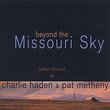| All Artists: Julius Katchen, Balakirev, Brahms, Chopin Title: Julius Katchen - Great Pianists of 20th Century Members Wishing: 0 Total Copies: 0 Label: Polygram Records Release Date: 10/20/1998 Genres: Dance & Electronic, Classical Styles: Chamber Music, Forms & Genres, Ballads, Fantasies, Sonatas, Historical Periods, Classical (c.1770-1830), Modern, 20th, & 21st Century, Romantic (c.1820-1910) Number of Discs: 2 SwapaCD Credits: 2 UPC: 028945685625 |
Search - Julius Katchen, Balakirev, Brahms :: Julius Katchen - Great Pianists of 20th Century
 | Julius Katchen, Balakirev, Brahms Julius Katchen - Great Pianists of 20th Century Genres: Dance & Electronic, Classical
|
Larger Image |
CD DetailsSimilarly Requested CDs
|
CD ReviewsColossal musician. Augustus Caesar, Ph.D. | Eugene, Oregon United States | 08/17/2001 (5 out of 5 stars) "Julius Katchen, who died of cancer at the age of 42 in 1969, was one of the unique pianistic talents of the century. Katchen left America shortly after World War II and landed in Paris, where he soon established himself as one of the most dazzling and sought-after instrumentalists on the continent. In America, however, he remained much less well-known. These magnificent recordings show a superb interpreter in his prime, and is easily one of the best sets in the "Great Pianists" series. In his memoirs, "Knowing When to Stop," the composer Ned Rorem paints a poignant picture of the young Katchen. Rorem describes Katchen as an outwardly ebullient but inwardly troubled man who struggled with his homosexuality (he eventually married a woman) and with the loneliness and isolation of the travelling virtuoso life. In terms of sheer musicianship, Katchen was second to none. With a repertory of 50 concertos and 20 recital programs in his fingers at any given moment, Katchen's memory was rivalled only by "a technique that shamed Horowitz" (as Rorem describes it). Sometimes criticized as a cold, mechanical interpreter, Katchen once told Rorem that he orgasmed while playing the andante of Brahms' F minor sonata at a London recital. These discs offer ample evidence of Katchen's taste, integrity and overwhelming mastery of his art. The recording of Brahms' F minor sonata is stunning. Recorded when the pianist was only two months past his 23rd birthday, they show a finished musician at work. Brahms was the composer most associated with Katchen, and it is easy to hear why. His identification and intimacy with Brahms' music is clear throughout these selections. His recording of Rorem's Second Sonata for Piano is another hair-raising experience. Premiered by Leon Fleischer, the sonata was rearranged and given a fourth movement by the composer especially for Katchen, whose playing matches finesse, subtlety and emotion with the most natural of techniques. His Franck, Mendelssohn and Liszt are likewise beautifully played. Perhaps the most interesting selection, however, is Balakirev's "Islamey," which was long considered the most unplayable piece in the repertory. Katchen makes it sound like child's play, with fingerwork that must be heard to be believed. This is an extraordinary musical experience by a great pianist who deserves to be much more well-known." A rare Rorem work performed wonderfully Eric | Somerville, MA United States | 09/04/2002 (4 out of 5 stars) "The Rorem Piano Sonata on this disc is the only one of I've heard, but just in case you're a Rorem fan, I write this for those who may be seeking something rare and special. Katchen's performance of this sonata is the only one I know of, and it's a doozy! Rorem (whose symphonic, organ, and vocal music is more readily available) outdid himself with this daring, charming, varied and entertaining bit of music. It's four parts are succinct, vibrant statements that show both Rorem's influences (French piano music, Impressionist melody, Le Six) and his aspirations (drama, minor key hints at atonality, expressionism). It's emotional stuff, and it comes so fast at times you can hear Katchen, masterful player, working hard to keep up. He's required to switch, instantly, repeatedly, in tempo and mood, and he does it every time, in an out and out battle with the piano.The Overture is grand, exploratory, stating clearly all the themes and hinting at the variations to come. The Tarantella is dizzying and lush, speeding by in less than two minutes. The Nocturne is poignant, melancholy and tender, slowing down to reach its fragile high notes with charming delicacy. Tocatta returns to the dizzying pace, with hands flying up and down the scales to keep up with the ongoing progression. All that has gone before is echoed, seconded, in a final, spry summation. It's just a gorgeous, solid bit of composition. Perhaps a bit old-fashioned in its romanticism, even traditional in its melody, but oh so welcome because of it."
|

 Track Listings (13) - Disc #1
Track Listings (13) - Disc #1






![Vivaldi's Ring of Mystery [With CD]](https://nationalbookswap.com/cd//m/30/0730/80730.jpg)

